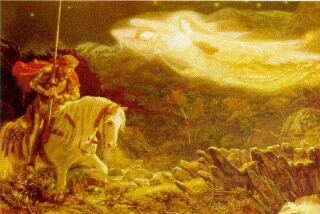The
disastrous
momentum of
ideologies made diverse impressions on our century's inaugural
thinkers. Still, all would eventually emphasize that the role of
Time or Process in the foundations of Mind made it necessary for
the activity of thinking to ground itself not only in forming and
systematizing ideas. Some thinkers of that time;
Nietzsche,
Rudolf
Steiner, and later
Heidegger, for example, spoke of 'the end of philosophy'. In
one respect they meant to overturn the lexicon of words and
priorities which originated in Ancient Greece and ever since had
continued to lend its definitions to 'philosophy'. Heidegger,
however, suggested that Philosophy's etymology,
philo
for
'love' and
sophia for 'wisdom' should be more
fundamentally
construed than the conventional interpretation as the 'love of
wisdom'. Heidegger put forth that the truer intention is rather the
'wisdom of love'. Rudolf Steiner described at length such a
reversal in its epochal implications even before Heidegger. Also
for Nietzsche, the 'end of philosophy' meant a fundamental
reversal: where philosophy claimed to measure life by thought,

Nietzsche called for measuring thought by life. It is
characteristic of the kind of trouble we find ourselves in that the
popular meaning of the 'end of philosophy' became not the
possibility of a more fundamental kind of thinking, but rather an
excuse to discredit thinking or to restrict it to the kind of
analytic procedures that could in principle be accomplished by a
computer.






